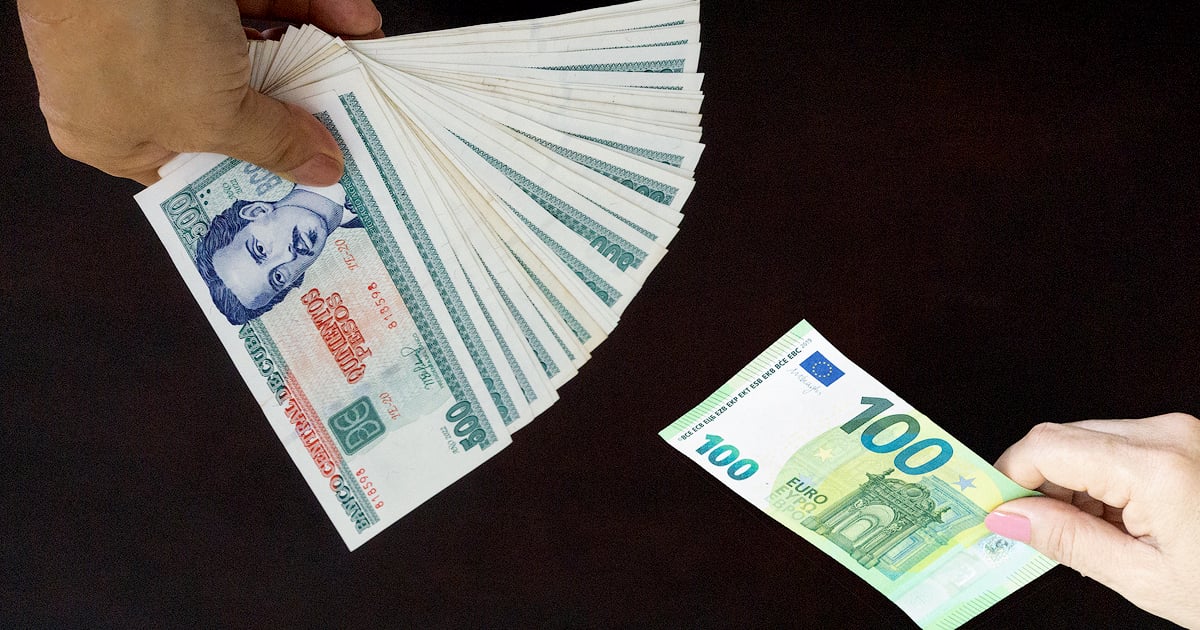The primary mouthpiece of the Cuban regime, the newspaper Granma, published an article on Wednesday threatening those who buy or sell foreign currencies. The piece emphasized that such activities are not only criminal offenses punishable by law but also result in the confiscation of the money involved, highlighting the severity with which the government seeks to control the economic transactions of its citizens.
In its digital edition, the newspaper lashed out at individuals exchanging national currencies for foreign ones, arguing that this “affects the country's economic system.” Additionally, it noted that any transaction involving the sale, transfer, or acquisition of foreign currency “is illegal and constitutes a crime.”
According to Granma, the public should be aware that there is no “informal market” but rather a criminal activity that “takes advantage of social communication networks to offer, buy, sell, and exchange national currencies and foreign currencies.”
The article specifically targeted the platform El Toque, labeling it as “an indicator of the illegal market” and accusing it of aiming to “affect the economy, generate a negative impact on the country's monetary scale, and worsen the living conditions of Cubans.” This narrative ignores the many facets of Cuba's worsening economic crisis and its primary culprit, the government itself.
Legal Framework and Penalties
The Granma article reminded citizens of the legal framework regulating currency transactions, urging them to cease buying and selling foreign currencies. It cited sections a) and c) of Article 11 of Decree-Law No. 361, dated September 14, 2018, which states that the Central Bank of Cuba (BCC) proposes “monetary, financial, credit, and exchange policies, coordinating their design and scope with fiscal policy objectives.”
The Central Bank is also responsible, according to Resolution No. 177 of November 26, 2020, for establishing “the exchange rate of the Cuban peso against foreign currencies.” The article also highlighted Decree-Law No. 362 of September 15, 2018, which in Article 15 specifies that currency exchange houses “are the Cuban financial institutions that conduct currency exchange operations and the buying and selling of foreign banknotes and coins.”
The Granma article further emphasized that, under Cuban Law No. 151, dated May 15, 2022, the current Penal Code, sections e) and g) of Article 315.1, “criminalize the actions of selling or, by any means, transferring or acquiring foreign currency.”
“These actions are punishable by two to five years of imprisonment, or a fine of five hundred to one thousand quotas, or both,” the article warned.
Moreover, it noted that individuals who risk engaging in this illegal market “expose themselves to being considered guilty of currency counterfeiting—Article 330.1 d) of Law No. 151 of 2022—which occurs when the currency sold or exchanged is counterfeit and the recipient circulates it.”
In July, Cuban police dismantled a network involved in multimillion-peso scams related to illegal currency trading in the city of Santa Clara, Villa Clara, arresting four women allegedly involved. From late 2023 until their arrest, the detainees conducted more than 15 scams, each amounting to between 800,000 and over 1,000,000 Cuban pesos, according to Lieutenant Colonel Héctor de la Fe Freire, head of the Ministry of the Interior (MININT) in the central Cuban city.
In February, two Cubans were arrested for their involvement in several cases of illegal currency trading scams, also in Santa Clara. According to the officialist profile Fuerza del Pueblo on Facebook, a couple recently fell victim to a scam after contacting individuals on social media who allegedly dealt in dollar trading.
FAQs on Cuba's Crackdown on Currency Transactions
Given the recent developments and strict warnings from state media, many Cubans may have questions about the legalities and risks associated with currency transactions. Here are some frequently asked questions and their answers.
What are the penalties for buying or selling foreign currency in Cuba?
The penalties include imprisonment for two to five years, fines ranging from five hundred to one thousand quotas, or both.
Is there any legal way to exchange foreign currency in Cuba?
Yes, the legal way to exchange foreign currency in Cuba is through officially sanctioned exchange houses or financial institutions as specified by the Central Bank of Cuba.
What is the role of the Central Bank of Cuba in currency exchange?
The Central Bank of Cuba proposes monetary, financial, credit, and exchange policies and establishes the official exchange rate of the Cuban peso against foreign currencies.
What should individuals do if they encounter counterfeit currency?
Individuals should report any encounter with counterfeit currency to the authorities immediately to avoid legal repercussions.
